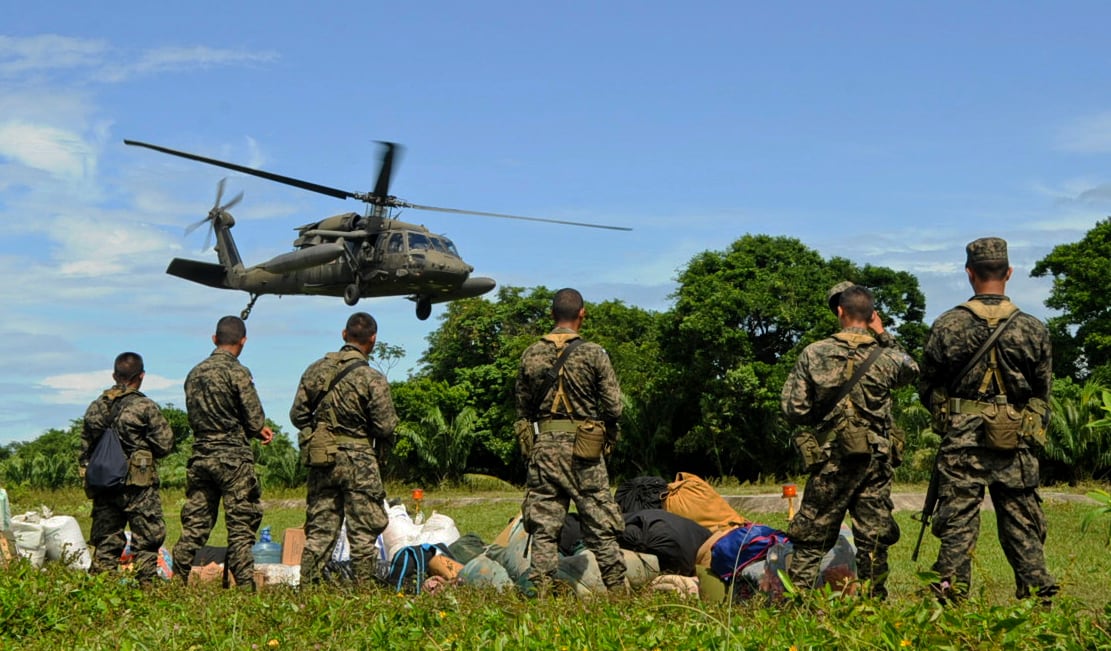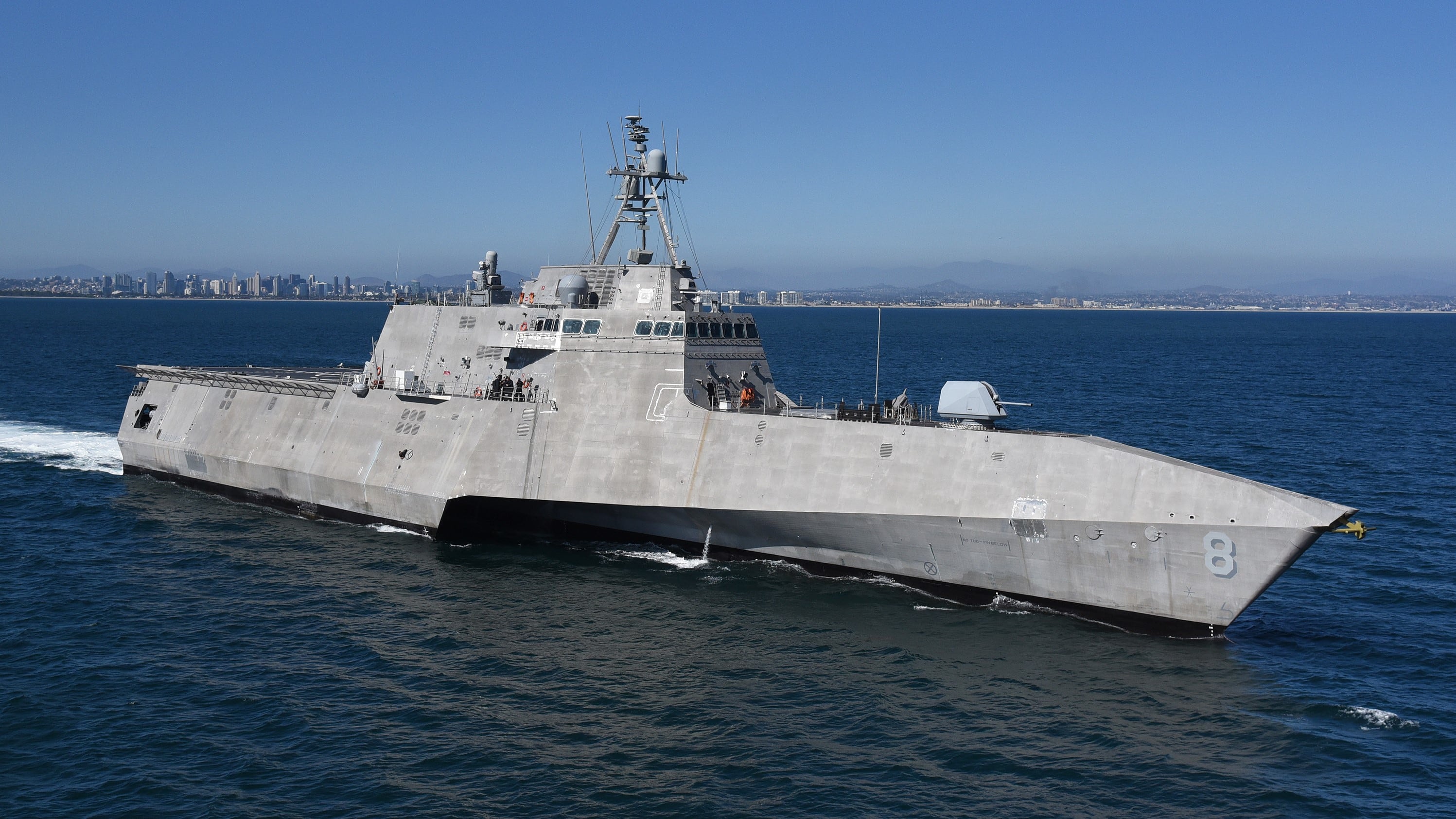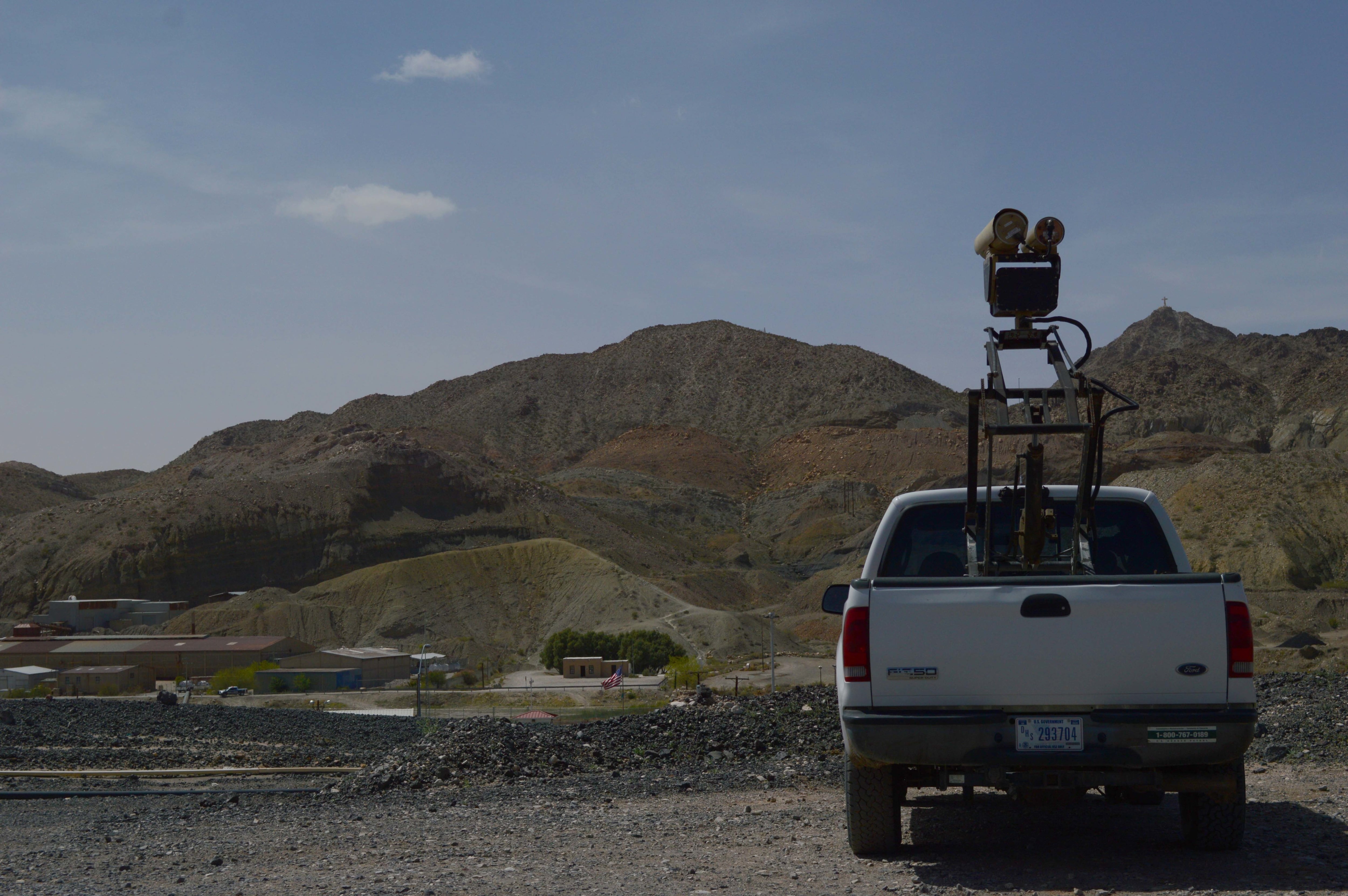When you think “great power competition," you probably think Russia and China in Eastern Europe and the Pacific. But both of those countries are meddling in South America, U.S. Southern Command’s chief told lawmakers on Tuesday.
More funding to SOUTHCOM could not only help with U.S. presence there, but strengthen partner countries against rampant corruption, said Adm. Craig Faller. It was part of his testimony before a Senate Armed Services Committee hearing by the subcommittee on emerging threats and capabilities, making the case for funding in the next National Defense Authorization Act.
Corruption is the “No. 1 security threat we face in this hemisphere,” he said, adding that those conditions are prime for Russia to undermine Latin Americans’ faith in democracy, while China continues to make predatory loans to those citizens that will never be paid off.

That corruption is widespread, according to news reports and research over previous decades. Last year, the Peruvian president resigned to avoid an impeachment hearing on vote-buying. More than a dozen countries were implicated in Brazil’s Operation Car Wash, a money laundering network that paid bribes to politicians. And at the individual level, just opening a small business might involve several bribes to public officials.
While the Pentagon’s National Defense Strategy, published in 2018, puts special focus on near-peer threats, one senator argued that in the SOUTHCOM area of responsibility, it’s corruption that is making the region a threat to the U.S.
“Corruption is the root cause of mass migration, instability and impunity in Central America, and the trafficking of illicit narcotics into our country,” subcommittee ranking member Sen. Gary Peters, D-Michigan, said. “Unless our strategy focuses on solving the root causes of corruption, then no amount of security assistance dollars to Latin American partners will be effective.”
RELATED

Earlier this year, the Trump administration threatened to cut all non-defense U.S. aid to the region, as punishment for the hundreds of thousands of Latin American migrants who have made their way to the U.S. southern border this year.
The decision is “ll-considered and totally counter-productive to reducing forced-migration numbers,” Peters said, adding, “Ultimately, it undermines our national security in the region.”
Experts have said that the cuts will have the opposite effect, driving more Guatemalans, Hondurans and Salvadorans to flee for the U.S., and exacerbating the drug trade.
“Unless we support civil societies in these countries, and help improve the economic conditions, we will never get a handle on the illicit drugs that flow through these Northern Triangle countries and into the United States,” Peters said.
With that economic and humanitarian aid in jeopardy, it could fall to Faller’s command to help bolster local militaries to fight that corruption.
“The pressure that’s being applied to these governments, I would say, is good,” he said, but would not make a judgment on the specific decision to cut aid.
The single best investment the U.S. makes is sending partner military officers to U.S. training and professional military schools, like the Army War College.
“Our partners want to work with us,” he said. “They want the benefit of United States education, training exercises and military equipment. It’s the best in the world.”
RELATED

Asked about gaps in capabilities, Faller mentioned a few, including looking forward to the Navy deploying a ship in October that is uniquely suited to countering trafficking in the shallow waters around these countries.
“The littoral combat ship is an excellent platform,” he said. It’s had some growing pains. I’m confident we’re going to come out of those."
More intelligence, surveillance and reconnaissance ability, included unmanned aerial vehicles, could help not only monitor the uprising in Venezuela, but also drug trafficking activities.
And though there are several joint exercises on the books each year in Latin America, most of them are at the unit-level.
“We do have high-end exercises,” he said, adding, “I think there’s more we could do to increase the level and complexity of those and bring more partners in.”
Meghann Myers is the Pentagon bureau chief at Military Times. She covers operations, policy, personnel, leadership and other issues affecting service members.





